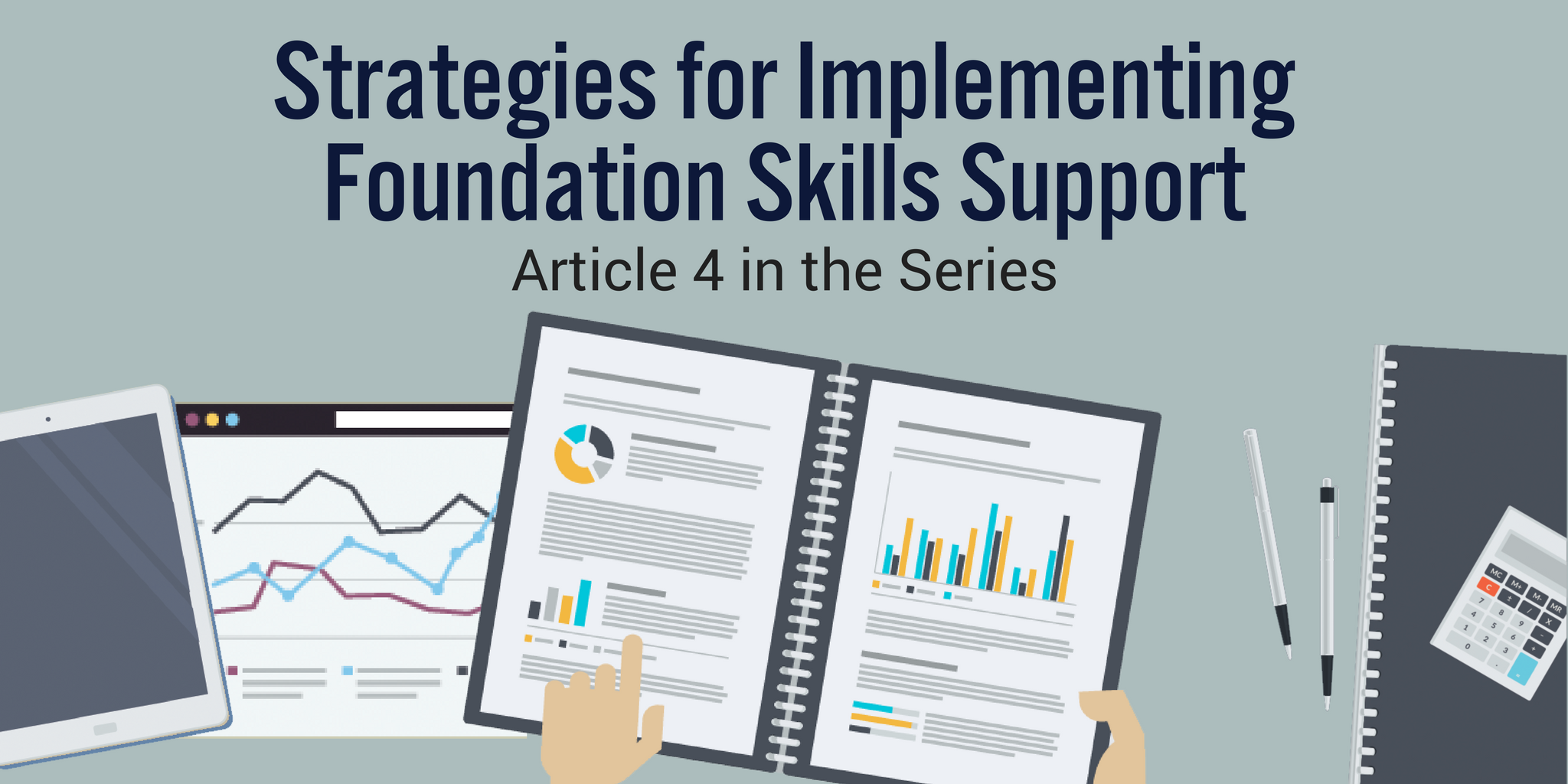Generative AI is transforming vocational training in Australia. Here are 8 practical ways to enhance training delivery, save time, and boost learner outcomes ethically.
News
Back to NewsStrategies for Implementing Foundation Skills Support

Supporting the development of foundation skills can occur at different stages of the learning journey, and in different ways depending on the needs of the learner. This article looks at strategies for supporting learners in the lead up to, and during the training process.
Foundation Skills development can occur at 2 main stages of the learning journey. Either before the learner starts their course, or during the course.
The decision around when to implement support strategies will depend on the current abilities of the learner, the logistical factors surrounding the learner and the characteristics and requirements of the course itself.
Prior to Enrolment
Support strategies that exist prior to the enrolment in a course fall into 3 main categories based on the current foundation skills of the learner:
Informal Training - For learners who need to brush up on their skills, usually due to an extended period of time since they’ve undertaken any study. Generally these learners have sufficient foundation skills, but may lack the understanding or experience in how a modern classroom/training organisation works. Informal training could include refresher programs, orientation or induction programs, self-paced online programs.
Formal Training - For learners who would struggle going straight into their desired course of study because of a significant disconnect between their current abilities and the learning environment and outcomes. In these cases we would be looking at older people returning to study, people re-engaging in study who had not previously completed their schooling, or people with English as a second or third language that need more intensive training to develop those language and literacy skills. Formal training includes qualifications from the Foundation Skills training package (FSK) and other accredited courses in digital literacy and associated technology.
Specialist LLN Programs - These programs are designed for learners with little to no working English skills, or literacy and language skill barriers that would prevent them from safely and competently operating in a modern workplace. Put simply, these programs are for people who have had very little education experience in Australia or come from a non-English speaking background (including First Nations Peoples). These programs are designed based on whether or not a person is from an English speaking background and are delivered by practitioners who specialise in the area of LLN and TESOL.
During Training
Support strategies that exist during the training can include:
Incidental Learning - These strategies are used to engage with a learner to develop foundation skills as a side effect of learning the technical skills. It requires active participation on the part of the learner and the trainer and leads to those moments where things start to come together for the learner and understanding of the topic is enhanced through the application of foundation skills. Incidental learning also occurs while the learner is focussed on the subject that interests them, allowing for contextualised applications of skills and understanding how a foundation skill is directly applicable to the work.
Mentoring - Some learners respond extremely well to mentoring to support the development of skills. This is generally the most effective method of up-skilling for hands-on, technical work. It helps a learner to engage in a real workplace context while allowing them to learn by observation and active participation. This kind of support should be supported with supplementary learning to track the progress of a learner.
Supplementary Learning - This is learning that supports or supplements the development of core/foundation skills alongside technical skills development. The results may take longer to achieve and there is a risk that a person can fall behind on the technical side of things if the supplementary learning is not done in conjunction with incidental learning.
The main thing to remember when looking at how to support a learner is that the solution needs to be flexible and feasible, and above all else help the learner to achieve their goals.
This is the fourth and final article in a series on foundation skills published in the lead up to a presentation on this topic being delivered (by yours truly) at the National VET Conference 2017 in Sydney.
This series aims to explore what foundation skills are, how to determine a learner’s needs for developing foundation skills and how to go about supporting them throughout the learning experience. Previous articles in the series are:
ABOUT THE AUTHOR
David Cunning

David Cunning is the General Manager of The Learning Resources Group. He has been in the VET sector for 12 years and has spent the best part of the last decade managing the creation of training and assessment resources for over 300 units of competency. He was the driving force behind the LLN Robot System of assessing and supporting vocational education students across the country.
Dave has invested himself in understanding the industry by attaining his Certificate IV in Training and Assessment and also a Diploma of Vocational Education and Training and a Diploma in Training Design and Development.
Prior to working in the VET sector, Dave was a psychology graduate and a graphic artist who ran his own independent publishing house.
Outside of TLRG office, Dave was voted the world's greatest dad by a 2/3 majority of his 3 sons. He is an amateur e-sports participator, avid motorcycle accumulator and aspires to be the single largest consumer of 2-minute noodles in the southern hemisphere.